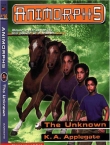
Текст книги "The Naturals"
Автор книги: Jennifer Lynn Barnes
сообщить о нарушении
Текущая страница: 2 (всего у книги 14 страниц)
CHAPTER 4
How would I feel about moving to DC?
“I’m seventeen,” I reiterated. “A better question might be how my legal guardians would feel about it.”
“You wouldn’t be the first minor I’ve recruited, Cassie. There are work-arounds.”
Clearly, he had not met my Nonna.
“Five years ago, custody of Cassandra Hobbes was remitted to her biological father, one Vincent Battaglia, United States Air Force.” Agent Briggs paused. “Fourteen months after your appearance in his life, your father was transferred overseas. You chose to remain here, with your paternal grandmother.”
I didn’t ask how Agent Briggs had come by that information. He was FBI. He probably knew what color toothbrush I used.
“My point, Cassie, is that legally, your father still has custody, and I have every confidence that if you want this to happen, I can make it happen.” Briggs paused again. “As far as the outside world is concerned, we’re a gifted program. Very selective, with endorsements from some very important people. Your father is career military. He worries about the way you isolate yourself. That will make him easier to persuade than most.”
I started to open my mouth to ask how exactly he’d determined that my father worried, but Briggs held up a hand.
“I don’t walk into a situation like this blind, Cassie. Once you were flagged in the system as a potential recruit, I did my homework.”
“Flagged?” I asked, raising my eyebrows. “For what?”
“I don’t know. I wasn’t the one who flagged you, and quite frankly, the details of your recruitment are moot unless you’re interested in my offer. Say the word if you’re not, and I’ll leave Denver tonight.”
I couldn’t do that—and Agent Briggs probably knew it before he asked.
He picked up the capless pen and scrawled some notes on the edge of one of his papers. “If you have questions, you can ask Michael. I have no doubt he’ll be painfully honest with you about his experience in the program so far.” Briggs rolled his eyes heavenward in a gesture of exasperation so universal that I almost forgot about the badge and the suit. “And if there are any questions that I could answer for you …”
He trailed off and waited. I took the bait and started pressing him for details. Fifteen minutes later, my mind was reeling. The program—that was how he referred to it, again and again—was small, still in its trial stages. Their agenda was twofold: first, to educate those of us selected to participate and hone our natural skills, and second, to use those skills to aid the FBI from behind the scenes. I was free to leave the program at any time. I would be required to sign a nondisclosure agreement.
“There’s one question you haven’t asked, Cassie.” Agent Briggs folded his hands in front of him again. “So I’ll answer it for you. I know about your personal history. About your mother’s case. And while I have no new information for you, I can say that after what you’ve been through, you have more reasons than most to want to do what we do.”
“And what is that?” I asked, my throat tightening at the mere mention of the m-word. “You said that you’ll provide training, and that in exchange I’ll be consulting for you. Consulting on what, exactly? Training for what?”
He paused, but whether he was assessing me or adding emphasis to his answer, I wasn’t sure.
“You’ll be helping on cold cases. Ones the Bureau hasn’t been able to close.”
I thought of my mother—the blood on the mirror and the sirens and the way I used to sleep with a phone, hoping so desperately that it would ring. I had to force myself to keep breathing normally, to keep from closing my eyes and picturing my mom’s impish, smiling face.
“What kind of cold cases?” I asked, my voice catching in my throat. My lips felt suddenly dry; my eyes felt wet.
Agent Briggs had the decency to ignore the emotion now evident on my face. “The exact assignments vary, depending on your specialty. Michael’s a Natural at reading emotions, so he spends a great deal of time going over testimony and interrogation tapes. With his background, I suspect he’ll ultimately be a good fit for our white-collar crime division, but a person with his skill set can be useful in any kind of investigation. One of the other recruits in the program is a walking encyclopedia who sees patterns and probabilities everywhere she looks. We started her out on crime scene analysis.”
“And me?” I asked.
He was silent for a moment, measuring. I glanced at the papers on his desk and wondered if any of them were about me.
“You’re a Natural profiler,” he said finally. “You can look at a pattern of behavior and figure out the personality of the perpetrator, or guess how a given individual is likely to behave in the future. That tends to come in handy when we have a series of interrelated crimes, but no definite suspect.”
I read in between the lines of that statement, but wanted to be sure. “Interrelated crimes?”
“Serial crimes,” he said, choosing a different word and letting it hang in the air around us. “Abductions. Arson. Sexual assault.” He paused, and I knew what the next word out of his mouth was going to be before he said it. “Murder.”
The truth he’d been dancing around for the past hour was suddenly incredibly clear. He and his team, this program—they didn’t just want to teach me how to hone my skills. They wanted to use them to catch killers.
Serial killers.
YOU
You look at the body and feel a rush of anger. Rage. It’s supposed to be sublime. You’re supposed to decide. You’re supposed to feel the life go out of her. She isn’t supposed to rush you.
She shouldn’t be dead yet, but she is.
She should be perfect now, but she’s not.
She didn’t scream enough, and then she screamed too much, and she called you names. Names that He used to call you. And you got angry.
It was over too fast, too soon, and it wasn’t your fault, damn it. It was hers. She’s the one who made you angry. She’s the one who ruined it.
You’re better than this. You’re supposed to be looking at her body and feeling the power, the rush. She’s supposed to be a work of art.
But she’s not.
You drive the knife into her stomach again and again, blinded to anything else. She’s not perfect. She’s not beautiful. She’s nothing.
You’re nothing.
But you won’t stay nothing for long.
CHAPTER 5
I gave Agent Briggs the go-ahead to talk to my father. My father called me. Less than a week after I told my dad this was what I wanted, I got word that Briggs had obtained the necessary permissions. My paperwork had gone through. That night, I quit my job at the diner. I took a shower, changed into my pajamas, and prepared for World War III.
I was going to do this. I’d known that from almost the moment that Agent Briggs had started speaking. I cared about my grandmother. I did. And I knew how hard she and the rest of the family had tried to make me feel loved, no matter how I’d come to them or how much of my mother there was in me. But I’d never really belonged here. A part of me had never really left that fateful theater: the lights, the crowd, the blood. Maybe I never would, but Agent Briggs was offering me a chance to do something about it.
I might never solve my own mother’s murder, but this program would turn me into the kind of person who could catch killers, who could make sure that another little girl, in another life, with another mother, would never have to see what I had seen.
It was morbid and horrifying and the very last life the family would have imagined for me—and I wanted it more than I had ever wanted anything.
I combed my fingers through my hair. Wet, it looked dark enough to pass for brown instead of auburn. The steam from the shower had brought some color into my cheeks. I looked like the type of girl who could belong here, with this family.
With wet hair, I didn’t look so much like my mother.
“Chicken.” I leveled the insult at my own reflection and then pushed back from the mirror. I could stay here until my hair dried—in fact, I could stay here until my hair went gray—and that wouldn’t make the conversation I was about to have any easier.
Downstairs, Nonna was curled up in a recliner in the living room, reading glasses perched on her nose and a large-print romance novel open in her lap. She looked up the second I stepped in the room, her eagle eyes sharp.
“You are ready for bed early,” she said, no small amount of suspicion in her voice. Nonna had successfully raised eight children. If I’d been the type to make trouble, there would have been none that I could have stirred up that she hadn’t already seen.
“I quit my job today,” I said, and the sparkle in her eyes told me those had been the wrong words to lead with. “I don’t need you to get me a new one,” I added hastily.
Nonna made a dismissive sound under her breath. “Of course not. You are independent. You do not need anything from your old Nonna. You do not care if she worries.”
Well, this was going well.
“I don’t want you to worry,” I said, “but something’s come up. An opportunity.”
I’d already made the executive decision that Nonna didn’t need to know what I’d be doing—or why. I stuck to the cover story that Agent Briggs had given me. “There’s a school,” I said. “A special program. The director came to see me last week.”
Nonna harrumphed.
“He talked to Dad.”
“The director of this program talked to your father,” Nonna repeated. “And what did my son say to this man who could not be bothered to introduce himself to me?”
I explained as much as I could. I gave her a pamphlet that Agent Briggs had given me—one that didn’t mention words like profilingor serial killersor FBI.
“It’s a small program,” I said. “At a kind of group home.”
“And your father, he said you could go?” Nonna narrowed her eyes at the smiling kids on the front of the pamphlet, like they were personally responsible for leading her precious granddaughter astray.
“He already signed the papers, Nonna.” I looked down at my hands, which had woven themselves together at my waist. “I’m going to go.”
There was silence. Then a sharp intake of breath. And then an explosion.
I didn’t speak Italian, but based on the emphatic gestures and the way she was spitting out the words, I was able to make an educated guess at a translation.
Nonna’s granddaughter was moving cross-country to enroll in a government-sponsored gifted program over her dead and rotting corpse.
* * *
Nobody stages an intervention like my father’s family stages an intervention. The Bat-Signal had nothing on the Battaglia-Signal, and less than twenty-four hours after Nonna sent out the distress call, the family had gathered in force. There was yelling and screaming and crying—and food. Lots of food. I was threatened and cajoled, browbeaten and clasped to multiple bosoms. But for the first time since I’d met this half of my family tree, I couldn’t just temper my reactions to theirs. I couldn’t give them what they wanted. I couldn’t pretend.
The noise built to a crescendo, and I drew into myself and waited for it to pass. Eventually, they’d notice that I wasn’t saying anything.
“Cassie, sweetheart, aren’t you happy here?” one of my aunts asked finally. The rest of the table fell silent.
“I’m …” I couldn’t say any more than that. I saw the realization pass over their faces. “It’s not that I’m not happy,” I interjected quickly. “It’s just …”
For once, they heard what I wasn’tsaying. From the moment they’d learned of my existence, I’d been family to them. They hadn’t realized that in my own eyes, I’d always been—and maybe always would be—an outsider.
“I need to do this,” I said, my voice as quiet as theirs had been loud. “For my mom.”
That was closer to the truth than I’d ever meant to tell them.
“You think your mother would have wanted you to do this?” Nonna asked. “To leave the family that loves you, that will take care of you, to go off to the other side of the country, alone, to do God knows what?”
It was meant as a rhetorical question, but I answered it: vehemently, decisively.
“Yes.” I paused, expecting an argument, but I didn’t get one. “I know you don’t like it, and I hope you don’t hate me for it, but I have to do this.” I stood up. “I leave in three days. I’d really like to come back for Christmas, but if you don’t want me here, I’d understand.”
Nonna crossed the room in a second, surprisingly spry for someone her age. She poked a vicious finger into my chest. “You come home for Christmas,” she said in a manner that made it quite clear she considered it an order. “You even think about not coming home?” She narrowed her eyes and drew her poking finger across her neck in a menacing fashion. “Capisce?”
A smile tugged at the edge of my lips, and tears burned in my eyes. “Capisce.”
CHAPTER 6
Three days later, I left for the program. Michael was the one who came to pick me up. He parked out at the curb and waited.
“I do not like this,” Nonna told me for maybe the thousandth time.
“I know.” I brushed a kiss against her temple, and she cupped my head in her hands.
“You be good,” she said fiercely. “You be careful. Your father,” she added, as an afterthought. “I am going to kill him.”
I glanced back over my shoulder and saw Michael standing with his back to a gleaming black Porsche. From a distance, I couldn’t make out the expression on his face, but I had a suspicion that he wasn’t having any trouble interpreting myfeelings.
“I’ll be careful,” I told Nonna, turning my back on the boy with the discerning eye. “Promise.”
“Eh,” she said finally. “How much trouble can you get into? There are only a few students in the entire school.”
A few students who were being trained to analyze crime scenes, pore over witness testimony, and track serial killers. What trouble could we possibly get into?
Without another word, I hauled my bag out to the car. Nonna followed and, when Michael opened the trunk but made no move to help me with my bag, she shot him a disapproving look.
“You are just going to stand there?” she asked.
With an almost imperceptible smirk, Michael took the bag from my hand and hoisted it effortlessly into the trunk. Then he leaned close, into my personal space, and whispered, “And here I’d pegged you as the kind of girl who’d want to do the heavy lifting herself.”
Nonna eyed me. She eyed Michael. She eyed what little space there was between the two of us. And then she made a harrumphing sound.
“Anything happens to her,” she told Michael, “this family—we know how to dispose of a body.”
Instead of giving in to the mortification and burying my head in my hands, I said good-bye to Nonna and climbed into the car. Michael followed suit.
“Sorry about that,” I said.
Michael arched one eyebrow. “About the death threat, or the imaginary chastity belt she’s fitting you with as we speak?”
“Shut up.”
“Oh, come on, Cassie. I think it’s nice. You have a family that cares.”
Maybe he thought that was nice, and maybe he didn’t. “I don’t want to talk about my family.”
Michael grinned, completely undeterred. “I know.”
I thought back to what Agent Briggs had told me about Michael’s gift.
“You read emotions,” I said.
“Facial expressions, posture, gestures, the works,” he said. “You nibble on the inside of your lip when you’re nervous. And you get this little wrinkle at the corner of your right eye when you’re trying not to stare.”
He said all of this without ever taking his eyes off the road. My gaze flitted to the speedometer, and I realized how fast we were going.
“Do you wantto get pulled over?” I squeaked.
He shrugged. “You’re the profiler,” he said. “You tell me.” He eased off the accelerator ever so slightly. “That’s what profilers do, isn’t it? You look at the way a person is dressed, or the way a person talks, every little detail, and you put that person in a box. You figure out what kindof individual you’re dealing with, and you convince yourself that you know exactlywhat everyone else wants.”
Okay, so he’d had an experience—and not a good one—with a profiler in the past. I took that to mean that the difficulty I’d been having getting a read on him was no accident. He likedkeeping me guessing.
“You wear a different style of clothing every time I see you,” I said. “You stand differently. You talk differently. You never say anything about yourself.”
“Maybe I like being tall, dark, and mysterious,” Michael replied, taking a turn so quickly that I had to remind myself to breathe.
“You’re not that tall,” I gritted out. He laughed.
“You’re annoyed with me,” he said, wiggling his eyebrows. “But also intrigued.”
“Would you stop that?” I’d never realized how irritating it was to be the one under the microscope.
“I’ll make you a deal,” Michael said. “I’ll stop trying to read your emotions if you stop trying to profile me.”
I had so many questions—about the way he’d grown up, about his ability, about why he’d warned me to stay away—but unless I wanted him making an intense study of my emotions, I’d have to get my answers the normal way.
“Fine,” I said. “Deal.”
He smiled. “Excellent. Now, as a show of good faith, since I’ve already spent a good chunk of time getting inside your head, I’ll give you three questions to try to get inside mine.”
The puzzle solver in me wanted to ask what kind of clothes he wore when there was no one around to see him, how many siblings he had, and which one of his parents had turned him into the kind of guy who was a little angry at the world.
But I didn’t.
Anyone comfortable driving this fast wasn’t going to shy away from a few little white lies. If I asked him what I wanted to know, all I would get was more mixed messages—so I asked him the only question I was fairly certain he’d answer honestly.
“What’s with the Porsche?”
Michael took his eyes off the road just long enough to flick his gaze over to me, and I knew that I’d surprised him.
“The Porsche?” he repeated.
I nodded. “I’m pretty sure it’s not standard FBI issue.”
The edges of his lips curved upward, and for once, there was no dark undercurrent to the expression. “The Porsche was a present,” he told me. “From my life before. Getting to keep it was one of the conditions I gave Briggs for joining up.”
“Why wouldn’t he have let you keep it?” I asked, realizing belatedly that I’d just burned question number two.
“Tax fraud,” Michael replied. “Not mine. My father’s.”
From the tightness in his voice, I got the feeling that keeping the Porsche probably hadn’t been the only condition of Michael’s participation in the program. Whether he’d asked for the government to overlook his father’s crimes or his father had bartered away his son in exchange for immunity, I wasn’t sure.
I didn’t ask.
Instead, I stuck to safer ground. “What’s it like? The program?”
“I’ve only been there for a few months,” Michael said. “Briggs sprung me to come get you. Good behavior, I guess.”
Somehow, I doubted that.
Michael seemed to sense that I wasn’t buying it. “And also possibly because Briggs needed someone to read your emotions and figure out whether or not you’re a secret bottle of rage who shouldn’t be granted access to confidential files.”
“Did I pass?” I asked, a teasing note making its way into my voice.
“Uh-uh-uh,” Michael replied. “That’s four questions.”
With no warning, he jerked the steering wheel to the left, pulled a U-turn, and then took a fast right. A few seconds later, the two of us slammed into a parking space at what appeared to be some kind of airport hangar.
“What,” I said, my eyes widening as I took in the sleek hunk of metal in front of us, “is that?”
“That?” Michael repeated. “That’s the jet.”
“Let me guess,” I said, only half joking. “You made getting to keep your private jet a condition of your acceptance into the program?”
Michael snorted. “Sadly, it belongs to the FBI. When Briggs isn’t out roping the young and impressionable into doing his dirty work for him, he belongs to a specialized team that works with law enforcement across the country. The jet cuts down on travel time. For us, it’s just a perk.”
“Cassie,” Agent Briggs greeted me the second I stepped out of the car. Just my name, nothing else.
Michael hit a button, and the trunk popped open. I went to retrieve my bag, and Michael shot Briggs a very good imitation of Nonna’s scowl. “You just going to stand there?” he asked the FBI agent.
Briggs helped me with my bag, and Michael caught my eye. “Amused,” he whispered. “And also some residual embarrassment.”
It took me a second to realize that Michael wasn’t interpreting Briggs’s facial expression. He was interpreting mine.
I’ll stop trying to read your emotions if you stop trying to profile me.
Liar.
Without another word, Michael turned and sauntered to the jet. By the time I climbed aboard, he was already lounging in the back row of seats. He looked up, his posture inviting, his eyes telling me to stay away.
Tearing my gaze from his, I took a seat in the row in front of him, facing the cockpit. We’d see how good he was at reading my emotions based on nothing more than the back of my head.
“Tell you what,” Michael whispered, his voice loud enough to reach my ears, but not Briggs’s. “If you promise not to give me the silent treatment, I’ll give you a fourth question, free of charge.”
As the plane took off and the city grew small behind us, I turned around in my chair.
“You’re leaving the Porsche in Denver?” I asked.
He leaned forward, close enough that his forehead was almost touching mine.
“The devil’s in the details, Cassie. I never said that Porsche was my only car.”








